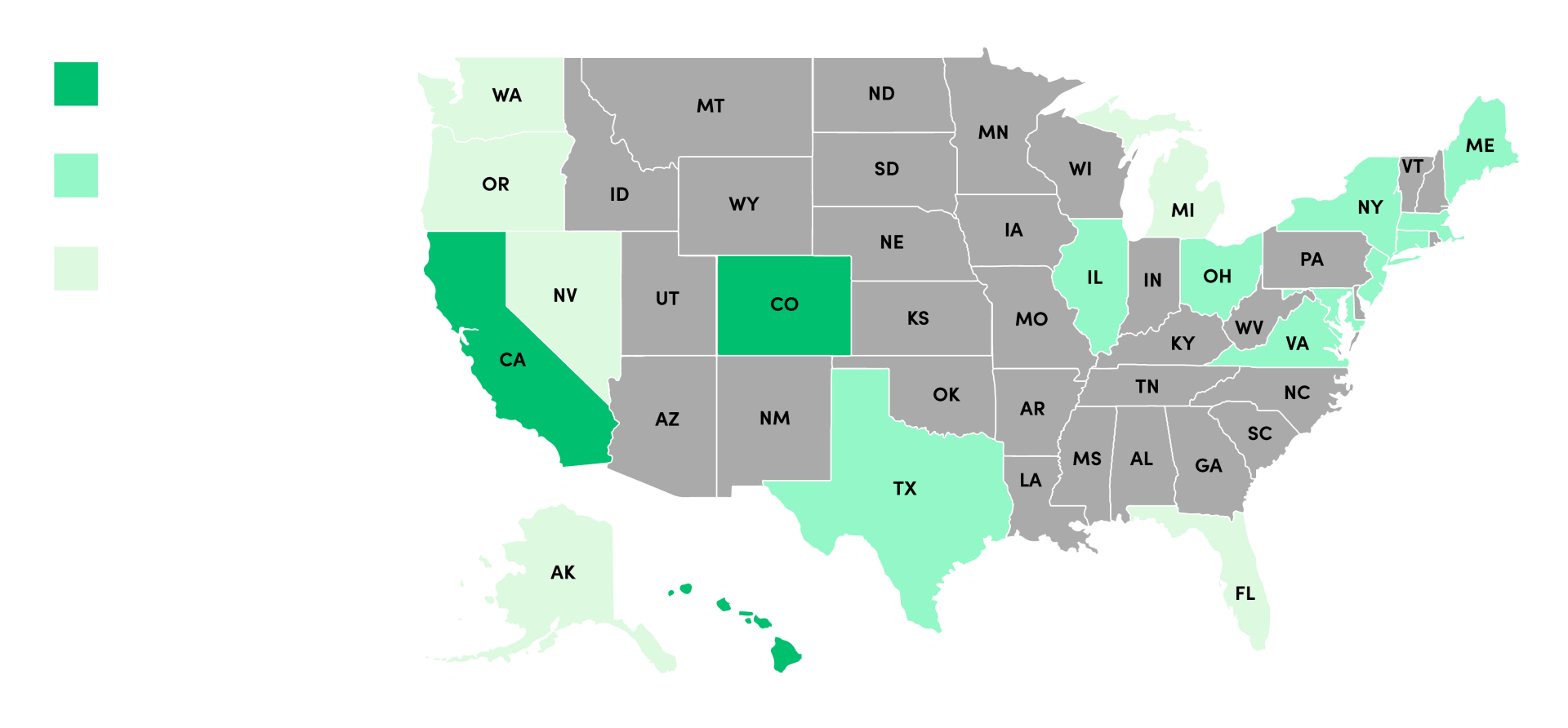OUR IMPACT
The Last Prisoner Project is a nonprofit organization that depends on our supporters to fund our work to repair the past and continuing harms of the war on drugs. Below is a summary of the work we've done to date and our plans for the future. Your support is critical to ensuring that every cannabis prisoner is released and has the opportunity to rebuild their lives. Thank you for joining the fight for freedom!
In just our first year of operations, LPP implemented direct services in three states. We also engaged in legislative advocacy, urging state lawmakers to pass criminal justice reform measures such as clean slate initiatives as well as "Ban the Box" initiatives and ensuring that those with cannabis offenses on their record have equal access to employment.
As a response to the COVID-19 pandemic, LPP has been a leading voice calling for immediate decarceration efforts and safety measures for incarcerated communities. This work has led to the release of hundreds of at-risk individuals, securing safety and hygiene resources for facilities, and the development of the LPP compassionate release program which matches individuals seeking compassionate release with pro bono attorneys.
To learn more about our COVID-19 response and how you can join the fight to decarcerate now click here.
To get information about some of LPP's other advocacy campaigns click here.
To read the stories of some of our constituents click here.
Learn more about our efforts on the state and federal level below.
FEDERAL POLICY
Last Prisoner Project is leading the effort in Washington, D.C. to ensure that any federal legislation legalizing cannabis also includes provisions for restorative justice including: commutations for all those currently incarcerated for nonviolent cannabis-related offenses federally, record relied in the form of automatic expungements for those still suffering the collateral consequences of federal marijuana offenses, and ensuring that a criminal record is not a barrier to participating in the legal cannabis industry. To learn more about our federal policy initiatives click here .
Last Prisoner Project is also working with the White House’s pardon working group and the Office of American Innovation on expanding clemency guidelines to include all victimless cannabis offenders and advocating for the release of federal cannabis prisoners.
IN YOUR STATE
California
Developed the Prison to Prosperity reentry program designed to create pathways to employment in the legal cannabis industry; piloting in Los Angeles with local community reentry organizations.
Colorado
Initiated our Cannabis Clemency Program and worked with the Governor's office and the Department of Corrections to secure an executive order expanding parole eligibility amidst the COVID pandemic leading to the release of hundreds of at-risk prisoners.
Part of the advocacy coalition that resulted in legislation expanding the governor's pardon power for cannabis possession offenses.
Hawaii
Hosted the first ever expungement clinic in Hawaii in partnership with the ACLU of HI and the Hawaii Innocence Project.
New York, Maine, Illinois, Texas, Virginia, Ohio, Massachusetts, Connecticut, Maryland, & New Jersey
Submitted written and/or oral testimony in support of several pieces of legislation including clean slate and expungement bills, adult-use cannabis legalization, and social equity. In the next year we hope to expand these initiatives to at least six new states that we have determined are most viable for these programs.




